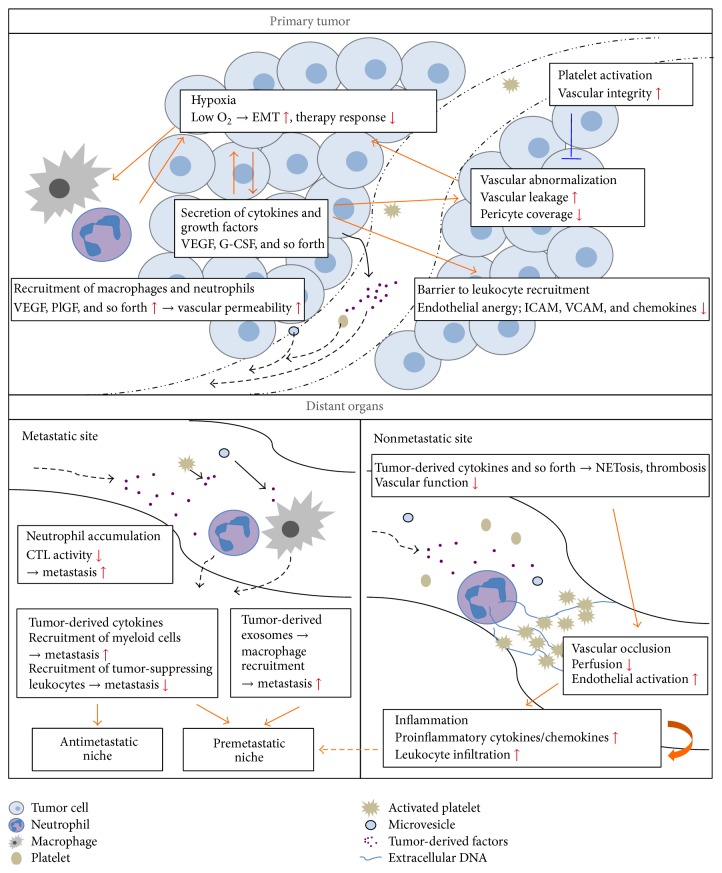Figure 1.
Altered function of blood vessels in tumor tissue and distant organs in individuals with cancer. Vascular function is impaired both at local tumor level and systemic level in an individual with cancer. The primary tumor secretes proangiogenic growth factors that contribute to vascular abnormalization with enhanced permeability and anergic endothelial cells within the tumor. The poor vascular function leads to hypoxia and subsequent recruitment of macrophages and neutrophils that further contribute to vascular permeability by secretion of additional proangiogenic factors. Hypoxia stimulates tumor invasiveness by induction of EMT and contributes to impaired therapy response. Effects on the vasculature are not limited to the actual tumor, but altered vascular function is also found in distant organs of tumor-bearing individuals. Tumor cell-derived cytokines are spread throughout the body in plasma or as cargo in platelets or microvesicles and can contribute to formation of pre- or antimetastatic niches in organs that exert sites for metastasis. These effects are mainly mediated by recruitment of leukocytes to the metastatic sites, which prepare the microenvironment to facilitate metastatic colonization. Furthermore, tumor-derived factors stimulate NETosis and thrombosis in distant organs leading to vascular occlusion and systemic inflammation also in organs that are not sites for metastasis.

